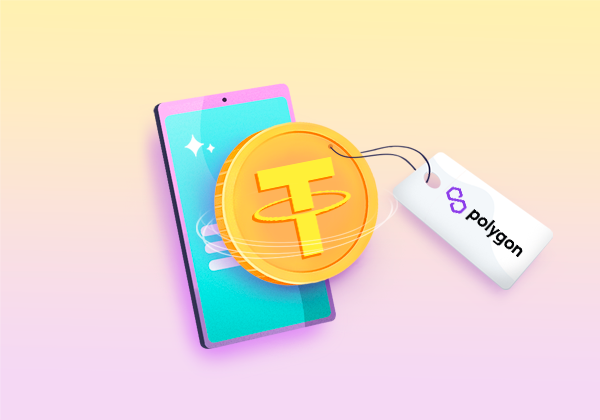
What is a Metaverse, and What is the Role of Cryptocurrency There?
The relationship between the virtual, financial, and physical worlds is becoming increasingly intertwined. With the help of modern technology, we can now accomplish multiple tasks with just the push of a button. The crypto ecosystem exemplifies this trend, with NFTs, blockchain games, and cryptocurrencies no longer limited to a niche community of enthusiasts. Instead, these projects are becoming increasingly accessible and form a single ecosystem called the metaverse.
In this metaverse guide, Sabai Academy will provide you with the metaverse meaning, as well as explain what the metaverse and games have in common and whether it'll be possible to work in such an ecosystem in the future.
What is a Metaverse?
Let's start with the two simplest questions: what is the metaverse and how does it work?
The "metaverse" is a virtual, three-dimensional online environment that aims to connect people and all aspects of their lives. It links various platforms, much like the Internet with different sites accessible through a browser.
Certain metaverse elements are already present in modern video games. Virtual worlds like Second Life, Fortnite, and work meeting sites such as Gather.town combine many aspects of our lives. Although these applications are not the metaverse itself, they serve as comparable examples.
The fully developed metaverse includes decentralized management, digital identification, economics, gaming, and other features in addition to social networks and gaming. The blockchain technology will support these future technologies, and the formation of users and the possession of valuable assets and currencies already contribute to the establishment of a single metaverse.
What Do the Metaverse and Games Have in Common?
The metaverse and video games share the concept of a virtual three-dimensional universe, but there are other similarities as well. Modern video games provide a variety of features and services that intersect with various aspects of our lives. For example, Roblox offers virtual events such as concerts and meetings, and users now engage in a variety of "cyberspace" activities beyond just playing games. In fact, Travis Scott's virtual performance in Fortnite drew in 12.3 million gamers, demonstrating the growing importance of such virtual experiences.
The Role of Cryptocurrency in the Metaverse
With its expansion, a metaverse concept requires more than just games to fulfill our needs. Cryptocurrency provides a way to enhance it by offering electronic evidence of ownership, secure transfer of funds, and decentralized management. Additionally, as the metaverse becomes more integrated into our lives, we'll want to participate in its decision-making.
While some games use simple fixes to address these issues, many developers believe that using cryptocurrencies and blockchain is the best solution. Unlike traditional video game development, blockchain provides a decentralized and transparent alternative that can work with diverse themes.
Moreover, video game makers are influencing the blockchain industry. Gamification is widespread in DeFi and is at the core of GameFi – that's why these two worlds are becoming even more intertwined and similar. As a result, important blockchain features will become appropriate for the metaverse's future development:
Digital proof of ownership
The blockchain provides a secure way to prove ownership of assets and transactions, using private keys and wallets to instantly verify who owns what. Wallets are considered one of the most trustworthy ways to establish digital identity and validate ownership.
The ability to collect digitally
People can establish who owns something, as well as prove that the item is original and unique. This is crucial for the metaverse, which aims to incorporate more real-world activities, and blockchain can also be used to prove ownership of tangible items.
Transfer of value
The metaverse will require a secure means of transferring value, and blockchain-based cryptocurrencies are more secure than in-game currencies. Users need a trustworthy currency to spend time and make money in the metaverse.
Governance
Users need to be able to regulate their engagement with the metaverse, including equitable governance. Blockchain offers a solution for this, as it can be used to vote on various aspects of the metaverse's work.
Accessibility
Blockchain wallets are accessible to everyone, with no deposit or personal information required. This makes managing finances and online identity with a wallet the most cost-effective option.
Compatibility
Blockchain technology is becoming more compatible with different platforms, with projects like Polkadot and Avalanche allowing for the creation of interoperable blockchains. This will be crucial for the metaverse, as it will require multiple initiatives to connect and collaborate seamlessly.
Will It Be Possible to Work in the Metaverse?
Finally, here's the answer to the question of how it will be possible to work in the metaverse in the future.
The metaverse, as previously mentioned, aims to integrate all aspects of our lives. While many individuals already work from home, in the metaverse world, you can visit a 3D office and communicate with your co-workers' avatars. Additionally, your work may be connected to the metaverse and provide income that can be utilized there. Such job opportunities already exist in our daily lives.
Thanks to GameFi and the Play-to-Earn concept, people all over the world now have the opportunity to create additional gamified sources of income. This online employment demonstrates that people are willing to live and work in virtual worlds, contributing to the development of the metaverse. While 3D landscapes and avatars may be absent from games that pay, such as Axie Infinity and Gods Unchained, people can also join the metaverse as a way to earn money in the online world.
Conclusion
The formation of a single metaverse, while still a long way off, is already showing signs of development. Although it may seem like another sci-fi application of blockchain and cryptocurrencies, projects like the metaverse already exist, and their potential to incorporate blockchain into our daily activities is clear. It remains to be seen whether humanity will truly embrace a metaverse field, but the groundwork is being laid for a future in which virtual and real worlds are seamlessly integrated.
► Sabai Academy — a place where studying blockchain, crypto, fractional ownership, and real estate investments becomes a catalyst for capital growth!
Sabai Academy
BOOST your knowledge with our FREE crypto courses!
Related Articles

What is Cryptocurrency, and Why Do We Need It?

How to buy USDT on the Polygon network and withdraw it to MetaMask?

